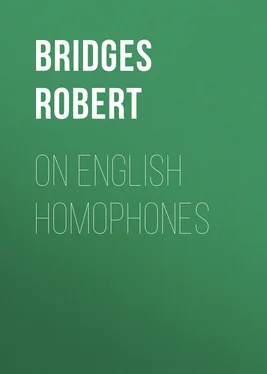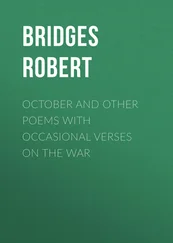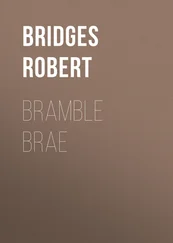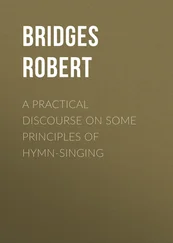Robert Bridges - On English Homophones
Здесь есть возможность читать онлайн «Robert Bridges - On English Homophones» — ознакомительный отрывок электронной книги совершенно бесплатно, а после прочтения отрывка купить полную версию. В некоторых случаях можно слушать аудио, скачать через торрент в формате fb2 и присутствует краткое содержание. Жанр: foreign_antique, Языкознание, foreign_edu, на английском языке. Описание произведения, (предисловие) а так же отзывы посетителей доступны на портале библиотеки ЛибКат.
- Название:On English Homophones
- Автор:
- Жанр:
- Год:неизвестен
- ISBN:нет данных
- Рейтинг книги:3 / 5. Голосов: 1
-
Избранное:Добавить в избранное
- Отзывы:
-
Ваша оценка:
- 60
- 1
- 2
- 3
- 4
- 5
On English Homophones: краткое содержание, описание и аннотация
Предлагаем к чтению аннотацию, описание, краткое содержание или предисловие (зависит от того, что написал сам автор книги «On English Homophones»). Если вы не нашли необходимую информацию о книге — напишите в комментариях, мы постараемся отыскать её.
On English Homophones — читать онлайн ознакомительный отрывок
Ниже представлен текст книги, разбитый по страницам. Система сохранения места последней прочитанной страницы, позволяет с удобством читать онлайн бесплатно книгу «On English Homophones», без необходимости каждый раз заново искать на чём Вы остановились. Поставьте закладку, и сможете в любой момент перейти на страницу, на которой закончили чтение.
Интервал:
Закладка:
Robert Bridges
On English Homophones / Society for Pure English, Tract 02
ENGLISH HOMOPHONES
Definition of homophone.
When two or more words different in origin and signification are pronounced alike, whether they are alike or not in their spelling, they are said to be homophonous, or homophones of each other. Such words if spoken without context are of ambiguous signification. Homophone is strictly a relative term, but it is convenient to use it absolutely, and to call any word of this kind a homophone. 1 1 Homophone is a Greek word meaning 'same-sounding', and before using the relative word in this double way I have preferred to make what may seem a needless explanation. It is convenient, for instance, to say that son and heir are both homophones, meaning that each belongs to that particular class of words which without context are of ambiguous signification: and it is convenient also to say that son and sun and heir and air are homophones without explaining that it is meant that they are mutually homophonous, which is evident. A physician congratulating a friend on the birth of his first-born might say, 'Now that you have a son and heir, see that he gets enough sun and air'.
Homophony is between words as significant sounds, but it is needful to state that homophonous words must be different words, else we should include a whole class of words which are not true homophones. Such words as draft , train , board , have each of them separate meanings as various and distinct as some true homophones; for instance, a draught of air, the miraculous draught of fishes, the draught of a ship, the draft of a picture, or a draught of medicine, or the present draft of this essay, though it may ultimately appear medicinal, are, some of them, quite as distinct objects or notions as, for instance, vane and vein are: but the ambiguity of draft , however spelt, is due to its being the name of anything that is drawn ; and since there are many ways of drawing things, and different things are drawn in different ways, the same word has come to carry very discrepant significations.
Though such words as these 2 2 Such words have no technical class-name; they are merely extreme examples of the ambiguity common to most words, which grows up naturally from divergence of meaning. True homophones are separate words which have, or have acquired, an illogical fortuitous identity.
are often inconveniently and even distressingly ambiguous, they are not homophones, and are therefore excluded from my list: they exhibit different meanings of one word, not the same sound of different words: they are of necessity present, I suppose, in all languages, and corresponding words in independent languages will often develop exactly corresponding varieties of meaning. But since the ultimate origin and derivation of a word is sometimes uncertain, the scientific distinction cannot be strictly enforced.
False homophones.
Now, wherever the same derivation of any two same-sounding words is at all doubtful, such words are practically homophones:—and again in cases where the derivation is certainly the same, yet, if the ultimate meanings have so diverged that we cannot easily resolve them into one idea, as we always can draft , these also may be practically reckoned as homophones.
Continent , adjective and substantive, is an example of absolute divergence of meaning, inherited from the Latin; but as they are different parts of speech, I allow their plea of identical derivation and exclude them from my list. On the other hand, the substantive beam is an example of such a false homophone as I include. Beam may signify a balk of timber, or a ray of light. Milton's address to light begins
O first created beam
and Chaucer has
As thikke as motes in the sonne-beam,
and this is the commonest use of the word in poetry, and probably in literature: Shelley has
Then the bright child the plumèd seraph came
And fixed its blue and beaming eyes on mine.
But in Tyndal's gospel we read
Why seest thou a mote in thy brother's eye and perceivest not
the beam that is in thine own eye?
The word beam is especially awkward here, 3 3 It is probable that in Tyndal's time the awkwardness was not so glaring: for 'beam' as a ray of light seems to have developed its connexion with the eye since his date, in spite of his proverbial use of it in the other sense.
because the beam that is proper to the eye is not the kind of beam which is intended. The absurdity is not excused by our familiarity, which Shakespeare submitted to, though he omits the incriminating eye:
You found his mote; the king your mote did see,
But I a beam do find in each of three.
And yet just before he had written
So sweet a kiss the golden sun gives not
To those fresh morning drops upon the rose,
As thy eye-beams when their fresh rays have smote
The night of dew that on my cheeks down flows.
Let alone the complication that mote is also a homophone, and that outside Gulliver's travels one might as little expect to find a house-beam as a castle-moat in a man's eye, the confusion of beam is indefensible, and the example will serve three purposes: first to show how different significations of the same word may make practical homophones, secondly the radical mischief of all homophones, and thirdly our insensibility towards an absurdity which is familiar: but the absurdity is no less where we are accustomed to it than where it is unfamiliar and shocks us.
Tolerance due to habit.
And we are so accustomed to homophones in English that they do not much offend us; we do not imagine their non-existence, and most people are probably unaware of their inconvenience. It might seem that to be perpetually burdened by an inconvenience must be the surest way of realizing it, but through habituation our practice is no doubt full of unconscious devices for avoiding these ambiguities: moreover, inconveniences to which we are born are very lightly taken: many persons have grown up to manhood blind of one eye without being aware of their disability; and others who have no sense of smell or who cannot hear high sounds do not miss the sense that they lack; and so I think it may be with us and our homophones.
But since if all words were alike in sound there would be no spoken language, the differentiation of the sound of words is of the essence of speech, and it follows that the more homophones there are in any language, the more faulty is that language as a scientific and convenient vehicle of speech. This will be illustrated in due course: the actual condition of English with respect to homophones must be understood and appreciated before the nature of their growth and the possible means of their mitigation will seem practical questions.
Great number.
The first essential, then, is to know the extent and nature of the mischief; and this can only be accomplished by setting out the homophones in a table before the eye. The list below is taken from a 'pronouncing dictionary' which professes not to deal with obsolete words, and it gives over 800 ambiguous sounds; so that, since these must be at least doublets, and many of them are triplets or quadruplets, we must have something between 1,600 and 2,000 words of ambiguous meaning in our ordinary vocabulary. 4 4 In Skeat's Etymological Dictionary there is a list of homonyms , that is words which are ambiguous to the eye by similar spellings, as homophones are to the ear by similar sounds: and that list, which includes obsolete words, has 1,600 items. 1,600 is the number of homophones which our list would show if they were all only doublets.
Интервал:
Закладка:
Похожие книги на «On English Homophones»
Представляем Вашему вниманию похожие книги на «On English Homophones» списком для выбора. Мы отобрали схожую по названию и смыслу литературу в надежде предоставить читателям больше вариантов отыскать новые, интересные, ещё непрочитанные произведения.
Обсуждение, отзывы о книге «On English Homophones» и просто собственные мнения читателей. Оставьте ваши комментарии, напишите, что Вы думаете о произведении, его смысле или главных героях. Укажите что конкретно понравилось, а что нет, и почему Вы так считаете.












